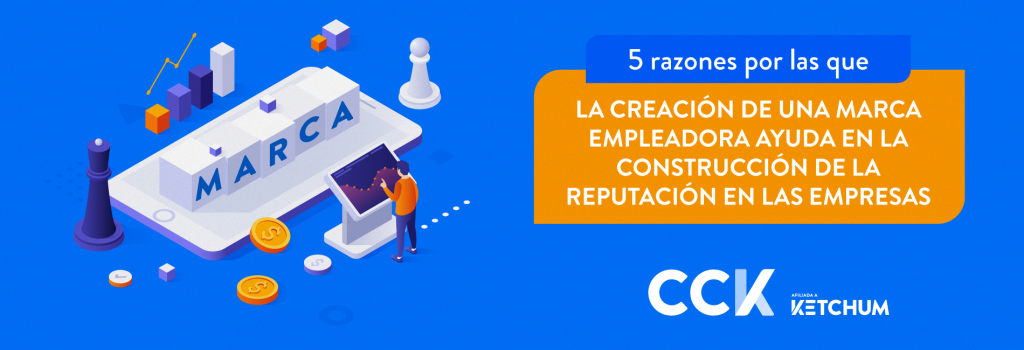Descubra en este diagnóstico rápido el estado de su Marca Empleadora:
Today, reputation is one of the most valuable intangible assets a company or organization can have. Over the past 25 years, the value of intangibles—such as talent, reputation, innovation, and social and environmental capital—has steadily increased. By the end of 2020, 54% of the market capitalization of over 60,000 publicly traded companies worldwide was intangible. In contrast, within the S&P 500, intangible assets accounted for 90% of the value in 2022. Twenty-five years ago, these percentages were attributed to tangible assets like financial and industrial capital.
Many experts assert that building a company’s reputation can take years, but it can be destroyed in seconds. Building it requires a consistent strategy over time and the ability to respond effectively when something goes wrong. Numerous variables need to be considered, but one of the most significant aspects in recent years is undoubtedly the creation of an employer brand.
In this article, we will explore five reasons why creating an employer brand helps build a company’s reputation.
- Attracting Top Talent Through Strategic Reputation Building
A company that consistently and strategically builds its reputation is far more likely to become an aspirational place to work.
Today, the diversity of generations in the workplace requires companies to broaden their compensation and benefits offerings, communication methods, and ways of engaging with and impacting various stakeholders.
Working cohesively on internal and external projection, marketing, and communication results in the creation of the company’s reputation.
If your company develops a strong and consolidated employer brand, it will attract top talent and improve its perception in the job market.
- Valuing Human Capital Increases Company Value
Placing employees at the center of company decisions can be part of a winning formula. But what does investing in human capital mean? It means creating an Employee Value Proposition (EVP) where your company defines how it will differentiate itself from other employers. This way, your company will position itself in the market as one that offers unique differentiators, thus adding a valuable attribute to its reputation.
- Designing the “Employee Journey” Enhances Employee Experience
The “employee journey” involves creating the experiences you want employees to have at each stage of their relationship with your company. How do you want candidates to feel during the selection process? How do you want new employees to speak about their new job? Candidates and employees will share their experiences with friends and family, whether positive or negative, so designing the employee journey is crucial for contributing to your company’s good reputation.
- Consistent Communication Builds Trust and Encourages Feedback
Constant and consistent two-way communication ensures that your employees feel trusted enough to provide feedback. Otherwise, employees will leave the organization with their ideas on how to improve. A company that continuously improves will have a better reputation than one that is unable to listen to its audiences.
- Satisfied Employees Are the Best Ambassadors
Have you ever been at a social event where someone talks about their work experiences? The likelihood of answering “yes” to that question is quite high. We’ve all heard stories about the workplaces of our friends, colleagues, partners, and siblings. Therefore, turning your employees into positive ambassadors for your company will undoubtedly boost its reputation.
Descubra en este diagnóstico rápido el estado de su Marca Empleadora:


